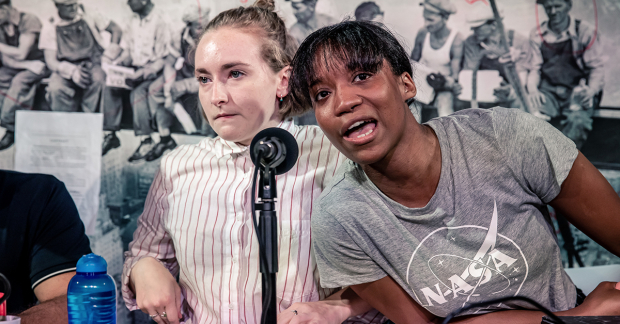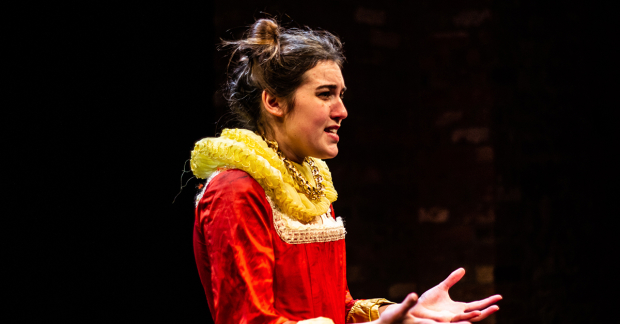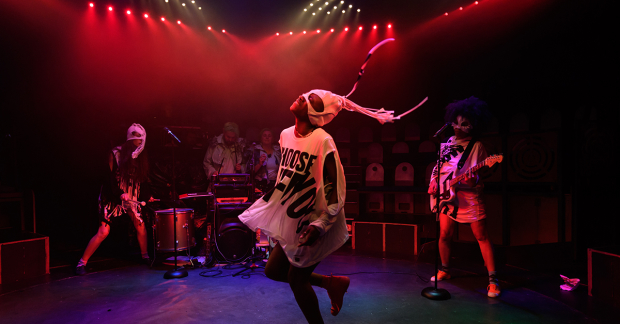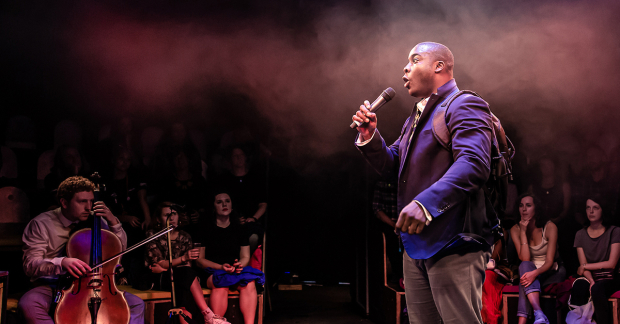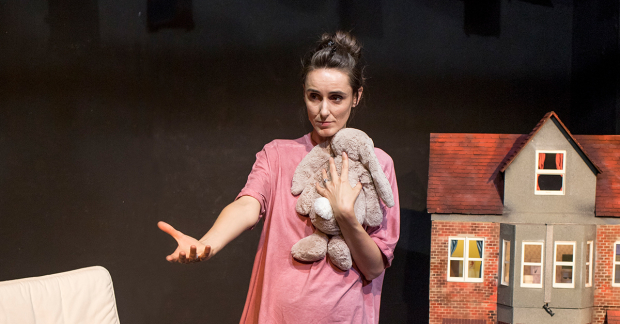Review: Spliced (Edinburgh Sports Club)
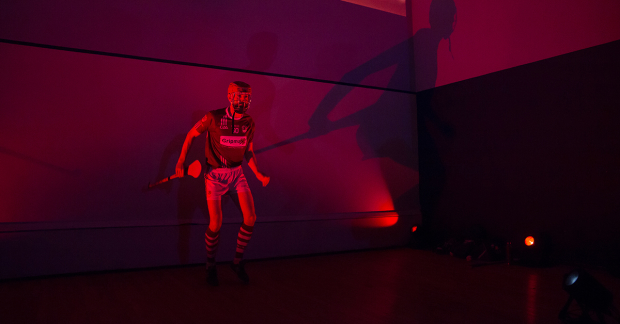
© Lara Capelli
I have to confess, I knew almost nothing about the sport of hurling ("the fastest field sport in the world") before going into Timmy Creed's solo show, which is being performed in a squash court at the Edinburgh Sports Club as part of the Traverse Theatre's Fringe offering.
But the sport looks like a hoot – an absolute whirligig of flying sticks, collisions and mud – brutish but with an air of finesse. It's a phenomenon among the Irish diaspora, with the Gaelic Athletic Association having a tally of 500,000 members worldwide. It's also the backdrop for Creed's hour-long and largely anecdotal piece. Creed himself was a hurling obsessive early on, memorising club names, driving himself to further success. It wasn't just a way of life, it was life.
But as any life does, things change, experiences can take someone away from the pitch and out into a different world. For Creed, it was a budding career in performance – he heads to New York, stars in a movie and then heads to a drama school in Oxford. His perspective on hurling changes, problems start to reveal themselves, and the piece neatly tracks a transformation of character, mentality and ethos.
There is something quietly mesmeric about watching Creed slowly tossing a ball across a squash court, deftly using his hurl both as an athlete and as a prop, an extension of his mood – brandished when exuberant, clattered along the floor when angry. He's an endearing, likeable stage presence, and a lot of the show succeeds through sheer charm.
But it's a nimble, fleet text, that, while instructive, never really shows its teeth – one quick reference to Creed's team going out on the town hints at a destructive sense of masculinity that only lingers for a small while. Even with some fun projection from David Mathúna, the plain, uninteresting atmosphere of the squash court starts to stifle the show. Taking Creed's lingering athleticism and placing it within the confines of an actual theatre may have been more dynamic.



